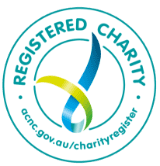- 19 July 2023
The role of nutrition in acne
Skin conditions comprise 17% of all problems encountered in general practice, and GPs require a wide range of expertise in assisting patients with these. Acne is a common skin condition, and although it is most common in adolescence, acne can occur at any age. In Australia and New Zealand, it is estimated that 93% of young people experience the condition, which can continue into adulthood. Acne significantly impacts self-esteem; irrespective of severity, acne is associated with an increased risk of anxiety and depression and negatively affects the quality of life.
For some time, research has shown that a Western diet high in fat, highly refined carbohydrates and dairy contributed to the development of acne. Recent research shows that patients with acne have significant differences in the gut microbiome composition, likely exacerbated by a Western-style diet. Dairy has been widely studied for its link with acne, and this was seen in a large systematic review and meta-analysis showing that all forms of dairy are associated with an increased risk of acne.
Following a whole food plant-based diet (WFPBD) can reduce acne as it is naturally low GI, high in fibre and improves insulin sensitivity. A WFPBD induces beneficial and anti-inflammatory changes in the gut microbiome, which reduces systemic inflammation and contributes to an improvement in acne.

This webinar provides healthcare practitioners with information on how an eating pattern focussed on unprocessed, whole plant foods can reduce the occurrence and severity of acne. They can then use this to make recommendations regarding dietary modifications to their patients in order to treat the common condition.
By the end of this webinar, attendees will be able to:
- Describe two pathophysiological processes leading to the development of acne.
- Identify at least three features of an eating pattern that can be beneficial for preventing and managing acne.
- Name tools and techniques to support patients suffering from acne to transition to a whole food plant-based diet.
Speaker
Dr Niyati Sharma (MBBS | FACD | MPH) is a qualified Dermatologist and is a fellow of the Australasian College of Dermatologists. She is a consultant dermatologist at the Box Hill Hospital and the Monash Medical Centre.
Raised in Melbourne, Dr Sharma undertook her undergraduate medical degree (MBBS) at Adelaide University before coming back to Melbourne to undertake her internship at Royal Melbourne Hospital. After a few years of working in different parts of Australia, including remote areas, she decided to specialise in Dermatology.
As part of her four year postgraduate training, Dr Sharma spent one year in Singapore at the National Skin Centre learning the nuances of treating Asian skin and their diseases. After finishing her Dermatology fellowship exams (FACD), Dr Sharma undertook a sub-speciality fellowship at Ann & Robert Lurie Children’s Hospital in Chicago in paediatric dermatology. This institution is a world leader in treating children’s skin diseases. Dr Sharma worked under the guidance of Professor Mancini and Professor Amy Paller, two prominent figures in dermatology.
Dr Sharma has also undertaken her Masters of Public Health (MPH), specialising in nutrition, policy and advocacy, at Johns Hopkins University in Baltimore, USA. Dr Sharma opened Inside Out Dermatology to help patients approach their skin diseases in a holistic manner.
CPD hours
This activity is approved for:
- 2.5 CPD hours (Educational Activities) with the Royal Australian College of General Practitioners (RACGP)
- 2.5 PDP hours with the Australian College of Rural and Remote Medicine (ACRRM)
- 2.5 CME hours with the International Board of Lifestyle Medicine (IBLM) toward the Lifestyle Medicine Maintenance of Certification (MOC).
CPD hours will be awarded upon viewing the webinar, completing a short quiz and reviewing two brief accompanying papers.
Access
Given the digital nature and immediate accessibility of our on-demand webinars, all associated fees are non-refundable. Paid members will be able to access the webinar recordings for free. Please see our refund policy here.

